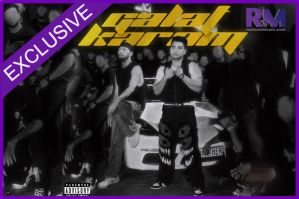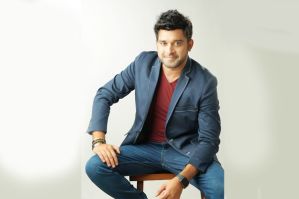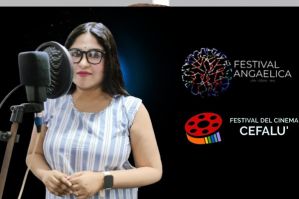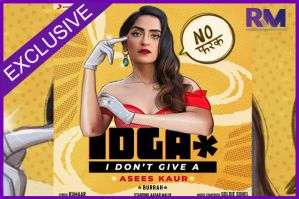Shafqat Amanat Ali - 'With Tabeer, my dream of making my own album with some soulful music comes true!'

Shafqat Amanat Ali is perhaps the biggest singing sensation to hit the subcontinent. Son of the legendary Pakistani singer Ustad Amanat Ali Khan of Pakistan, he belongs to the nine generation old Patiala Gharana.
Shafqat's voice represents a unique blend of classical gayaki and contemporary panache. The soul in his powerful voice has the rare ability, which can carry the listener to the peaks of ecstasy and the depths of pain within moments – the Rockstar Ustad (A term coined by Bollywood music director Salim Merchant) in conversation with Radioandmusic.com's Chirag Sutar on his new solo album 'Tabeer'
What does 'Tabeer' mean?
Tabeer means 'fulfillment of dreams', with this my dreams of making my own album with some soulful music comes true! (Laughs)
When did you start working on Tabeer?
For the album, I was approached by Music Today and they wanted the songs to have some Sufi elements in it, they heard some of my demos and liked the idea. It took around eight months for us to work on the concept; however, the recording of the album was over in two months. I recorded the album in Pakistan, Tabeer is already out here.
What genre does this album fall under?
I won't classify this album in any particular genre; it's for everybody – its soulful music with some Sufi elements.
But real Sufi music is different from that what we hear…
What we hear is not real Sufi music, if one wants to hear Sufi in its original form, they should hear it at the Mazhaars, it includes Shayaari's and use of certain instruments' like the Harmonium, Tabla, Ek- Tara and Matka – that's the real Sufi sound.
The songs in Tabeer are influenced by many yesteryear maestros'…
Well, I won ' t say they are 'influenced', as I have made some variations. The first song Khairheyan de naal is originally by Tufail Niazi – I am a great fan of his, I borrowed the line Khairheyan de naal from the song and wrote and composed the rest. Kartal naina, the second was something that I wrote, whereas Rohi is a very old Kaafi sung by famous Pakistani Sufi singer Zaahida Parveen. I made few changes in it and gave it a contemporary sound.
Talking about your previous band, what was the reason behind quitting 'Fuzon'?
I was comfortable singing with the band initially, but after I started getting offers from bollywood ('Mitwa' and others), the band started feeling insecure, and I would feel this whenever we performed. There was bad energy on stage – finally, I decided to quit.
But, listeners tend to compare the sound, have you made any changes?
There are something's that I have done purposely in this album – like the sound. I didn't want the sound to clash with the songs that I had previously sung. I have used different arrangement which gives this album a new feel.
How do you plan to promote this album?
I would be doing stage shows in metropolitan cities. Besides that we'll also have it digitally available on i-tunes.
In this album, you are the singer as well as the composer, how do you prefer to do composing?
Well, if I am at home I simply take the Harmonium and compose on it. Otherwise, if I am travelling, I record the tune on my I-Pod and work on it later.
How has the experience of working with some of the ace music directors been so far? Any upcoming movies?
Shankar- Ehsaan- Loy, Salim Merchant and Sajid Wajid are great t to work with. They are open and give the singer scope to improvise. Recently, I did playback for Hello and Zindagi Tere Naam which has the duet Trishna Trishna with Sunidhi Chauhan.

















